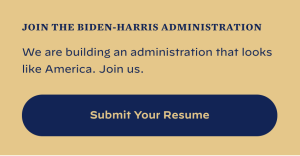With the world and US trying to cope with COVID-19, you probably haven’t thought much about what’s going to happen in the first 100 days of the Biden administration. The good news is we have and will be sending out our research on what to expect. Our mantra is: prepare now or get left behind. Our job is to prepare you for what we see coming to drive your success.
Today, we’re covering Biden’s top 5 priorities for the US economy. The size and impact of these policies will shift significantly should Democrats win both Georgia senate races. However, we put this outcome at a low probability of less than 25%.
Even with a dual victory, Schumer would have to manage centrist senators like Sen. Joe Manchin of West Virginia, Sen. Kyrsten Sinema of Arizona and Sen. Jon Tester of Montana. Manchin has already stated he would vote against increasing the number of SCOTUS and ending the filibuster.
With this in mind, let’s roll through the top 5 economic priorities for Biden with a split Congress and the limitations this brings.

Personnel as policy. Biden must get his economic team announced, organized and Cabinet members approved by the Senate. Here’s a current list of his proposed team members: Special Envoy for Climate John Kerry; US Treasury Janet Yellen; NEC Brian Deese; Domestic Policy Council Susan Rice; CEA chair Cecilia Rouse; CEA council Jared Bernstein; CEA council Heather Boushey; and OMB Neera Tanden. The sole hiccup in this list will be Tanden and Senate consent will be next to impossible without Democrat control.
As we wrote previously, the naming of Kerry is a key indicator for where the early focus will be and the likelihood of carbon pricing or a carbon tax. These will be next to impossible to get through even a unified Democrat Congress. But this doesn’t mean big changes can be made on how the US government is directed to act on climate change.
One of the personnel problems the Trump administration had throughout the last 4 years was simply getting their people in place to enact the policies Trump campaigned upon and was elected to put in place. We can expect some of the same issues to plague the Biden administration.

Distribution of the vaccine. The FDA Advisory Panel gave the green light to the Pfizer vaccine. The FDA is likely to approve it and frontline essential personnel should be receiving the 1st shots next week. This is simply fantastic news, underscores the success of Operation Warp Speed and has lifted the stock market even with a massive increase in COVID related infections.
Yet, this is only the 1st step. Remember with two shots required, there are only 100 million Pfizer vaccines purchased and this means only 50 million will be vaccinated. This leaves close to 300 million without a shot, literally, of getting vaccinated. More will have to be purchased and distributed.
As Biden takes over, he will be judged on this two-step process despite the previous administration creating the structure. To get this right will be a Herculean task and will likely have problems. And on top of it, he will need to convince the population to get the shots exactly 1 month apart. Current Associated Press-NORC Center for Public Affairs Research suggests only 50% will do so. If this is not done adequately, Biden will delay the full economic recovery.

2021 new stimulus plan. The current debate on a new stimulus package demonstrates the likelihood of a smaller plan. House Democrats originally wanted $3T+, the White House wanted $1.5T+ and the Senate wanted $0.5T. Now, the discussions appear to center on $900B+, but are stalling. Yet, we know Congress must approve spending plans to keep the US government open by 12/15 and a stimulus deal is connected to this new legislation.
We also know without a new stimulus plan, these current benefits will stop at the end of the year: $300 extra weekly unemployment check; extended unemployment benefits; PUA program (gig, freelancers, contract workers); moratorium on evictions; and student loan deferment.
Given the significant rise in COVID infections and the renewal of shutdowns, the US economy is beginning to slow, and job losses are likely to grow in 2021. Even with the promise of a vaccine and improved Q3 & Q4 economic outlook , there will be pressure to do something in Q1 and Q2 for those most negatively impacted. Tourism, transportation, leisure, and hospitality workers and businesses will need the most help.

Infrastructure plan. During the campaign, Biden advocated for a $1.3T infrastructure spending plan to address the needs of the nation’s road, bridges, schools and transit projects. As well, there will be a focus on broadband, smart cities and clean energy projects to enhance America’s global competitiveness and innovation capacity. Here’s a quick list of the a few problems needing approval from The Committee for Economic Development of The Conference Board (CED):
- Driving on poor roads cost motorists roughly $112 billion in additional repair and operating costs annually.
- Americans take over 200 million trips daily across deficient bridges in the 102 largest metropolitan regions
- U.S. roads infrastructure received a D rating in the most recent American Society of Civil Engineers report; poor infrastructure has led to an increase in traffic fatalities by 7% from 2014 to 2015.
Biden knows there’s bi-partisan support for a spending deal and this represents what could be a key early win for him to bring the country together. How big will depend on how weak the economy grows in Q1 and Q2.

Climate plan. As stated above, Kerry is an indicator of Biden’s plans. Biden has stated he will rejoin the Paris Climate Accord and has a $1.7T clean energy plan. Remember, Biden introduced the first-ever climate change bill in 1986. He has not supported the Green New Deal fully but has supported the environmental recommendations of the Biden-Sanders Unity Task Force. I highly recommend reading these as they are the blueprint for where policy is headed.
Here’s a key line from the report: “We will use federal resources and authorities across all agencies to accelerate development of a clean energy economy and deploy proven clean energy solutions; create millions of family-supporting and union jobs; upgrade and make resilient our energy, water, wastewater, and transportation infrastructure; and develop and manufacture next generation technologies to address the climate crisis right here in the United States.”
With apologies to Joe Manchin, this doesn’t say anything about the need for legislation. The point being POTUS is powerful and can use executive orders, changes to administrative procedures and agency regulations/procedures to enact changes to climate policy. This includes independent regulatory agencies like the CFTC and the Federal Reserve. The recent letter from House Republicans to Federal Reserve Chairman Jay Powell and Vice-Chair Randy Quarles highlights the issue of non-legislative actions on climate.
Personnel as policy, distribution of vaccine, new stimulus, infrastructure and climate change will drive Biden’s policy in his first 100 days. With or without legislation, there will be plenty of changes as the nation moves from a Trump administration to a Biden administration. Elections have consequences. Prepare now for your future success.


